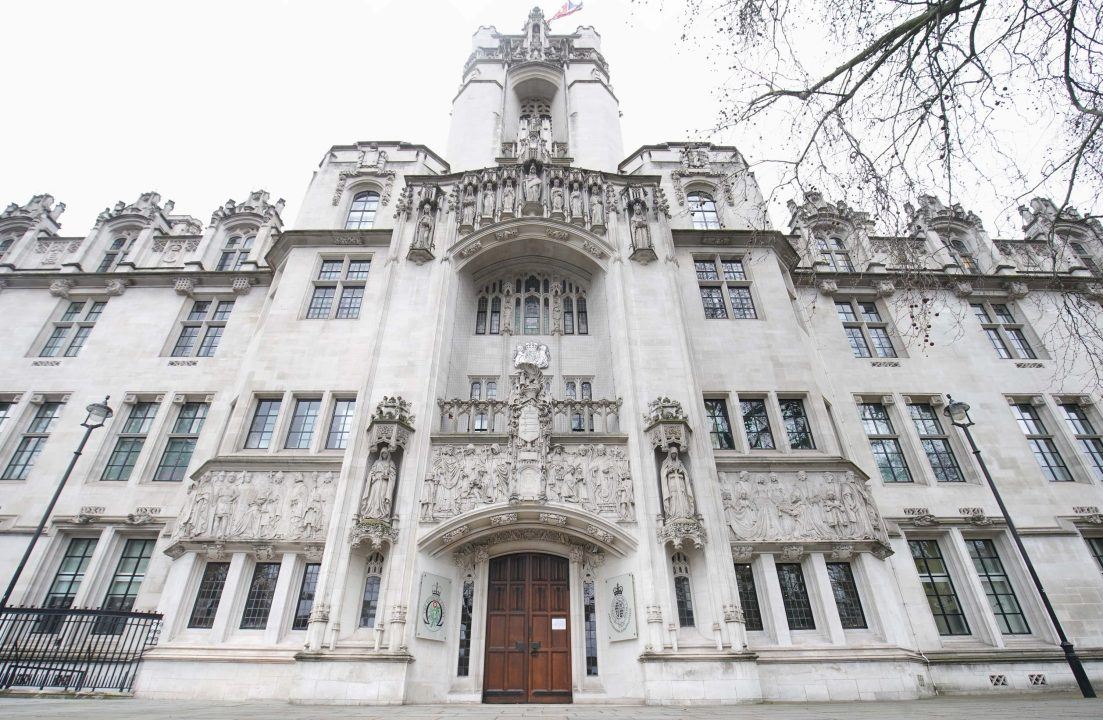A lawyer acting for the Scottish Government has told the Supreme Court that a person with a gender recognition certificate (GRC) is “recognised in law” as having changed sex.
Ruth Crawford KC was responding to a legal challenge by For Women Scotland (FWS) over whether trans women can be regarded as female for the purposes of the 2010 Equality Act.
She told the court a person with a GRC, which she said is a document legally recognising a change of sex and gender, is entitled to the “protection” afforded to their acquired gender as set out in the 2010 Equality Act.
“We submit there are only two sexes or genders, and a person whose sex becomes that of a man or woman in consequence of a GRC belongs to that sex, and will have the protection afforded under the Equality Act”, she said.
She said a person who becomes a woman “in consequence of a GRC” is entitled to those protections “just as much as others enjoy those protections who are recorded as a woman at birth”.
She added the reverse also applies, and a person who has become a man would lose those same protections, explaining it would be “strange” for someone to retain them after meeting the “onerous conditions” required to qualify for a GRC.
These include, the court heard, living with gender dysphoria for two years, and “an intention to continue living in the acquired gender until death”.
Ms Crawford told the court by effecting a change in legal status, a GRC has “far-reaching consequences” and is more than “just some legal fiction” or of “symbolic value”.
She said: “A change of legal status has been effected, so that person becomes recognised in law as belonging to, or becoming, the sex of their acquired gender.”
She added a GRC is “no more a legal fiction than adoption”, saying an adopted person is treated in law as the child of their adopter “and no-one else”.
She also said the “inevitable conclusion” of the FWS challenge, if successful, is that trans women with GRCs would “remain men until death for the purposes of the Equality Act”.
Ms Crawford told the court since the Gender Recognition Act was passed in 2004, 8,464 people in the UK had obtained a GRC – which she said was an average of 420 people each year.
She said this “very small number” should “allay” concerns about any impact on “public sector equalities duty obligations”.
The case is the latest in a series of legal challenges brought by For Women Scotland over the definition of “woman” in the Gender Representation on Public Boards (Scotland) Act 2018.
This is a piece of legislation that mandates 50% female representation on public boards.
The case centres on whether somebody with a GRC recognising their gender as female should be treated as a woman under the 2010 Equality Act.
FWS is seeking to overturn a 2023 ruling by the Scottish courts that treating someone with a GRC as a woman under the Equality Act is lawful.
The group successfully challenged the original Act in 2022 over its inclusion of trans women in its definition of women, with the Court of Session in Edinburgh finding changing the definition of a woman in the Act was unlawful as it dealt with matters falling outside the Scottish Parliament’s legal competence.
Following the successful challenge, the Scottish Government dropped the definition from the Act and issued revised statutory guidance – essentially, advice on how to comply with the law.
This guidance stated that under the 2018 Act, the definition of a woman was the same as that set out in the Equality Act 2010, and also that a person with a GRC recognising their gender as female had the sex of a woman.
FWS challenged this revised guidance on the grounds sex under the Equality Act referred to its biological meaning, and said the Government was overstepping its powers by effectively redefining the meaning of “woman”.
However, its challenge was twice rejected by the Court of Session, which granted FWS permission to appeal to the Supreme Court in London.
On Tuesday, Aidan O’Neill KC, acting on behalf of FWS, told the court sex is an “immutable biological state”, and called on it to take account of “the facts of biological reality rather than the fantasies of legal fiction”.
The appeal before Lord Reed, Lord Hodge, Lord Lloyd-Jones, Lady Rose and Lady Simler continues.
Follow STV News on WhatsApp
Scan the QR code on your mobile device for all the latest news from around the country


 PA Media
PA Media
























